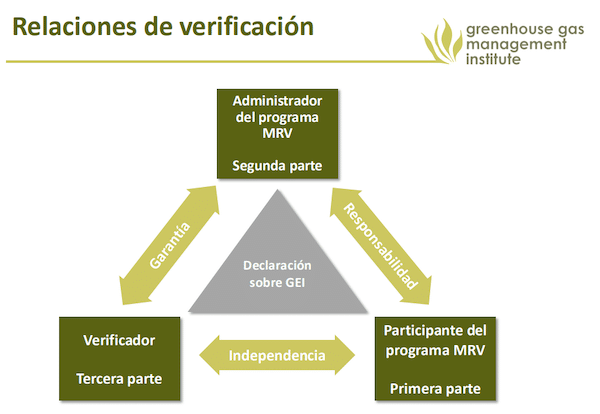
We’re proud to share that GHGMI’s Course 401: Verification for Inventories and Projects has been officially listed among the accepted options—an acknowledgment that signals more than just alignment with standards. It represents a growing global expectation: that credible climate action depends on credible training.
Raising the Bar for Climate Accountability
This recognition highlights the growing importance of the role rigorous training plays in strengthening climate policy. Around the world, governments are realizing that the integrity of national GHG data—and the trust of citizens and investors alike—rests on one critical foundation: the competence of the people verifying it.
Chile’s move sends a clear message. Verification can no longer be an afterthought or a procedural formality; it is a safeguard for truth in climate action.
About the HuellaChile Program
HuellaChile is a voluntary initiative led by Chile’s Ministry of the Environment that helps organizations calculate, report, and manage their GHG emissions. Participants can earn national recognition for verified inventories, encouraging transparency and sustainability across sectors.
But the program’s strength depends on trust in the data. By requiring independent, well-trained verifiers, HuellaChile ensures that reported emissions are not just numbers—they’re a reflection of measurable progress toward national climate goals.
Why Verification—and Training—Matter
Verification is at the heart of effective Measurement, Reporting, and Verification (MRV) systems. It provides confidence that emissions data is accurate, consistent, and aligned with international standards.
When governments embed rigorous training requirements into these systems, they elevate the credibility of their climate commitments. In doing so, Chile is helping define what accountable climate governance looks like.
GHGMI’s Role
GHGMI’s Course 401: Verification for Inventories and Projects remains one of the most comprehensive and practical trainings for GHG verification professionals. The course equips practitioners to:
- Understand international verification standards
- Apply best practices in reviewing GHG inventories and project reports
- Review GHG data, procedures, documentation, and controls
- Identify common challenges and ensure quality in reported data
- Complete and execute a verification event
This kind of professional rigor is what transforms climate ambition into measurable outcomes.
Global and National Significance
For Chile, this recognition strengthens HuellaChile’s credibility and ensures that organizations’ climate actions are verifiable and transparent.
For the international community, it signals an emerging norm: that verification is only as credible as the training behind it. Around the world, governments and accreditation bodies—from the UNFCCC’s mandatory reviewer training to the EU’s accredited verifier standards—are formalizing requirements for technical competence.
With alumni in over 200 countries and territories, GHGMI continues to help professionals, institutions, and governments worldwide develop the expertise needed to meet their climate commitments.
Beyond Chile: The Bigger Question
Chile’s decision is not an isolated one—it reflects a broader shift in global climate governance. As more countries tighten their systems for MRV, a new expectation is emerging: climate credibility must be earned through competence.
This raises a fundamental question: Who ensures that climate reporting is transparent, accurate, complete, consistent, and/or comparable?? Without independent, well-trained verifiers, emissions reporting risks becoming a box-checking exercise rather than a credible foundation for climate decision-making and action. Training, in this sense, is not just professional development—it has become climate infrastructure.
As more countries move toward mandatory disclosure and verification, the demand for trusted, standardized training will only grow. Chile may be among the few that have made this link explicit, but it will soon become a mentor within a growing community of rigorously developed country programs.
Next Steps
We invite climate professionals in Chile and beyond to explore GHGMI’s training opportunities, including Course 401 and a wide range of courses, diplomas, and workshops designed to strengthen MRV capacity.
Have a program that could benefit from certification and training? Contact us to learn more. Together, we can continue to build the expertise that makes climate action both transparent and real.

Comments